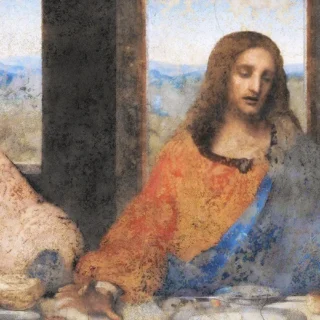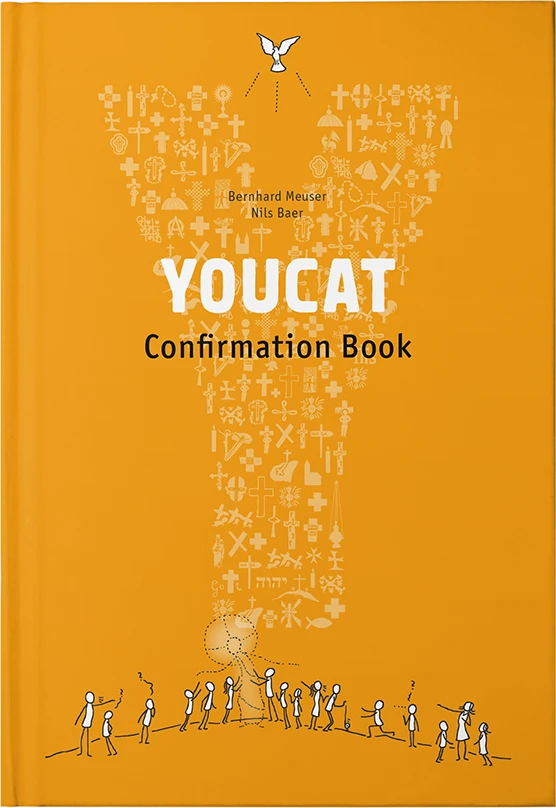

Credopedia
St. Peter and Paul
On June 29, the Church celebrates the Solemnity: the Feast of the two Princes of the Apostles Peter and Paul.
St. Peter and Paul
On June 29, the Church celebrates the Solemnity: the Feast of the two Princes of the Apostles Peter and Paul. It is said that just as ancient Rome was built on the two brothers Romulus and Remus, so too the Church is built on the witness, the martyrdom, of the two princes of the Apostles – Peter and Paul. We celebrate the anniversary of their deaths, the day they bore witness to their faith in Christ with their own lives. We can find both tombs in Rome. Above the tomb of St. Peter rises the landmark of the Church, the Basilica of St. Peter, and above the tomb of St. Paul, on the outskirts of present-day Rome, the magnificent Basilica of St. Paul Outside the Walls.
The two saints are the two main pillars of the Church, which is powerfully expressed by the statues of them in St. Peter’s Square, one on the right and the other on the left. On one side of the square is Peter with his key and on the other side is Paul with his sword. Peter’s key is a symbol that Jesus has given him the power of the keys with the words, “I will give you the keys to the kingdom of heaven. Whatever you bind on earth shall be bound in heaven; and whatever you loose on earth shall be loosed in heaven.” (Mt 16,19). The sword of St. Paul, on the other hand, is a symbol of the Word of God, of which the Letter to the Hebrews says: “For living is the Word of God, efficacious and sharper than any two-edged sword.” (Heb 4,12) With this two-edged sword, the Word of God, in his mouth, Paul (and with him many others) conquered the Roman Empire for Christ.
Because we celebrate (yes, celebrate!) the death of these two saints, we hear readings that talk about their death, even though it is not directly described in Sacred Scripture, since the history of the young Church described in Acts ends before it comes to the death of the two Princes of the Apostles. In the last chapter of Acts, we see Paul in Rome, having taken the Gospel there to the then known “ends of the earth,” so he is still alive. That is why some exegetes think that the Acts of the Apostles was probably written before the year 64 or 67 because otherwise, St. Luke would not have simply omitted something as important as the death of St. Paul and Peter. Because the death of the two apostles is not mentioned in the Bible, we hear two readings in the liturgy that indirectly mention their deaths.
The first reading is about Peter’s imprisonment just before the Passover (Acts 3,10), a year after Jesus’ crucifixion. He is thrown into prison and his death is already determined. But an angel comes in the night and frees him. Thus, Peter experiences here symbolic anticipation of his death, but also symbolic anticipation of his resurrection, in the miraculous liberation from the death dungeon by the hand of the angel. The second reading is about Paul, who feels that his death is near, and is happy to know that he has completed his course and preached the Gospel to the Gentiles, He writes: “I am now being sacrificed, and the time of my departure is at hand. I have fought the good fight, completed the race, kept faith. Already, the garland of righteousness is ready for me, which the Lord, the righteous Judge, will give me on that day, but not only to me, but to all who eagerly await his appearing… [T]he Lord stood by me and gave me strength so that through me the proclamation might be fulfilled, and all the Gentiles might hear it” (2 Tim 4, 6-7, 17-18).
Paul is aware of his calling to take the gospel to the Gentiles, while elsewhere he speaks of Peter having the calling to take the gospel to the so-called “circumcised,” that is, to the Jews (cf. Gal 2,7).
Peter, however, has an even greater calling, “Peter” being the rock (“כיפא/kefa” in Aramaic, “petra” in Greek) on which Christ built His Church. And this is what the Gospel says:
“When Jesus went into the region of Caesarea Philippi he asked his disciples, “Who do people say that the Son of Man is?” They replied, “Some say John the Baptist, others Elijah, still others Jeremiah or one of the prophets.” He said to them, “But who do you say that I am?” Simon Peter said in reply, “You are the Messiah, the Son of the living God.” Jesus said to him in reply, “Blessed are you, Simon son of Jonah. For flesh and blood has not revealed this to you, but my heavenly Father. And so I say to you, you are Peter, and upon this rock I will build my church, and the gates of the netherworld shall not prevail against it.” (Mt 16, 13-18)
Peter did not recognize by human intelligence that Jesus is the Son of God, that Jesus could not be seen. Jesus performed extraordinary miracles, such as raising the dead, but so had some prophets in the Old Testament. The fact that Jesus is the Son of God was revealed to Peter by the Father in heaven through a charism of the Holy Spirit. This charism is given to Peter, the disciple of Jesus, and all his followers. It is a gift of the Holy Spirit that is vital for the Church. One would only have to imagine the absurdity of Jesus becoming man and disappearing back into heaven 2,000 years ago without somehow ensuring that what he revealed to us would safely reach us. This charism of preserving the Church in that truth which the God-Man Jesus proclaimed was given to Peter by the Lord. That is why there is this beautiful word: Ubi Petrus, ibi ecclesia! – “Where Peter is, there is the Church!”
The key power of St. Peter includes three moments:
- The most important is the forgiveness of sins: Peter has the authority to forgive any sin, no matter how horrible, in the name of Jesus, because Jesus wants all people to be saved and come to the knowledge of the truth.
- Furthermore, the proclamation of the faith: Peter has a charism regarding truths of faith and morals. Namely, we need to know two things to attain eternal life: First, what has been revealed to us about God-that is, what we may know about Him-and second, how I am to live life as a Christian.
- Thirdly, the key power includes the disciplinary aspects. The authority entrusted to Peter is so great that even Paul – to whom Jesus Himself appeared and who never needed human revelation but learned everything from the Lord Himself – went to Peter and asked for a confirmation of his teachings to make sure that – as he says – he was not running or had run into the void (cf. Gal 2,2). Only after Peter had confirmed his teachings did Paul go out into the world and proclaim them to the Gentiles.
At the same time, Paul saw that Peter was a limited man like all of us. We know that Peter denied Jesus before his suffering, and even after Jesus ascended to heaven, he was tempted again and again to fall prey to his weakness. The Epistle to the Galatians, for example, reports how Peter, out of fear of the Jews, began to live like a Jew again, whereupon Paul contradicted him to his face (cf. Gal 2, 11-14). Here we see the interplay: Peter is not simply an autocrat who can do whatever he wants. Not everything the pope does and says is infallible, but only what he says on matters of faith and morals ex-cathedra – that is, as pope and expressly with the authority to teach entrusted to him by Jesus. In other matters, such as his lifestyle, he can be very wrong – as can be seen in several examples from the Renaissance. But also, in political questions or opinions on current issues, he can be mistaken, of course, because there it is not about the preservation of the good of faith revealed by God. We are bound to absolute obedience to the Pope only when he exercises his teaching office and proclaims the teachings of Christ in fidelity to the teachings of the Catholic Church of all times.
For him to be able to do this, we must pray for him, and this is what Pope Francis asks for very often. So, on this feast day, let us pray especially for the Pope, but also for all the other bishops who, like Paul, exercise their office together with the Pope, so that the Word of God may reach the ends of the earth and as many people as possible may be saved.

YOUCAT Digital
Discover our digital products, which will help you to grow in faith and become missionaries yourself.







